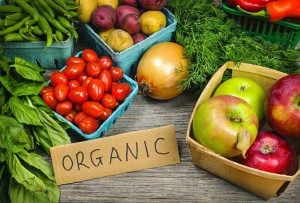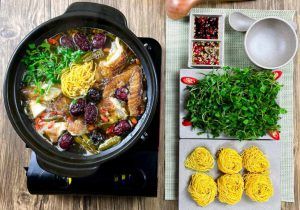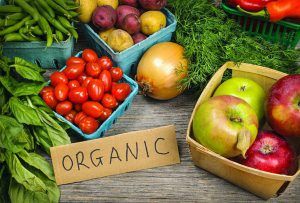
Vietnam's rich agricultural heritage is marred by the detrimental effects of chemical farming, leading to issues like disease outbreaks, low-quality produce, and soil pollution. The solution lies in embracing sustainable organic agriculture to overcome these challenges.

1/ Improve the quality of agricultural products
The most obvious feature of organic agricultural products that we can see is the increase in the safety and quality of agricultural products. With organic farming, no use of harmful chemical products, as well as strict control of factors when growing, consumers can be assured of the safety of the product.
No more nitrogen residues, residues of toxic chemicals that can affect health. At the same time, organic farming helps agricultural products to increase their distinctive flavor.

2/ Expanding the path to export agricultural products
In countries around the world, the import of agricultural products is very strict, and agricultural products can only be imported when meeting organic standards. The development of organic agriculture brings Vietnamese agricultural products closer to exporting to other countries.
Evidence from the fact that now a number of our organic products are exported such as: Tuyet San organic tea, organic rice, organic coffee, etc.

3/ Creating sustainability in agricultural production
Organic agriculture appreciates and respects the balance of nature in farming. Therefore, respecting the laws of nature, protecting the land, water, natural enemies, and preserving the environment are considered long-term steps and create sustainability for the future.
4/ Respecting the land and protecting land resources
Organic farming is carried out according to the process of crop rotation, community, cover crops and the use of organic fertilizers, factors that facilitate soil organisms are improved and a stable soil structure is formed.
With the replacement of chemical fertilizers with organic fertilizers, the soil has improved physico-chemical properties, increased fertility, increased humus and organic matter in the soil. Contributing to improving and making the land better and better.
In addition, the regeneration of nutrients, energy is also improved and the ability to store nutrients in the soil is improved, which plays an important role in controlling soil erosion, contributing to improved efficiency. for plants.

5/ Bringing benefits to water sources
Chemical fertilizers when applied are not completely absorbed by plants, but partly dissolved into the water used for irrigation in ditches, and partly absorbed into the groundwater. These are the causes of water pollution.
With no use of chemical products, organic agriculture will be a reasonable solution to help limit water pollution.
6/ Regulating the ecosystem
With the criterion of always balancing ecological factors in organic farming, do not consider insects as harmful animals, do not consider weeds as things that must be eliminated by chemical measures. . But consider them to be the balancing factors of nature.
Organic farming uses nature to manage itself, using increased natural enemies or antagonistic plants to control pests. These are things that help rebalance the ecosystem, helping the ecosystem become harmonious and diverse.

7/ Benefits for the air environment
Using organic agriculture helps to reduce the use of non-renewable energy sources, contributing to reducing greenhouse effect and global warming through absorption carbon in the soil, helping to reduce air pollution.
8/ Still ensuring yield
What growers worry about when they want to start with organic farming is the fear of reducing yield. That could happen during the early transition between conventional and organic farming.
However, reports, studies and in fact in many countries, when the ecology of the growing area has improved, the yield of organic farming is not inferior to that of traditional farming.
With so many benefits from organic farming, especially this will be a sustainable direction for the agriculture of Vietnam and the whole world. For the safety of health, for the protection of the surrounding environment and also for yourself. Organic farming, why not?
READ MORE: HAVING DONE ORGANIC FARMING, MUST KNOW HOW TO DIVERSIFY CROPS









